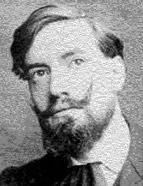

In 1912, Jaime Cortesão, urged for "a wide renewal of historical studies in Portugal", indispensable to the renewal of national consciousness, in Vida Portuguesa [Portuguese Life], the Renascença Portuguesa journal under his direction. He was also jointly committed to this with Alfredo Coelho de Magalhães, directing the Renascença's 'Biblioteca Lusitana' [Lusitanian Library] collection. The present needed to be "fertilised with a spirit of historical continuity". (Paulo Samuel, A Renascença Portuguesa, p. 105). He was challenged by António Sérgio, for whom the "Lusitanian model of the past was unknown. Lusism is always naturally connected to Historism, or Defunctism". (Ibidem, p. 109). Indeed, the Torre do Tombo [national archives] should not be considered an apothecary for national ailments, since the essential did not lie in the past but "in the interest in the problems of today.” (Ibidem, p. 111). Antagonistic positions at the outset. But it was Cortesão who drew closer to Sérgio as he had caused him to reflect. He may even have begun to study history as a reaction to Sérgio. A period of romantic, verbose exaltation with mere civic and political utility was followed by the realisation that history is an action, a pursuit, patience. His appetite for the history-construction of historians emerged. It was the need of someone who most likely felt that all that rhetoric lacked a foundation.
However, the production that might have resulted from this new approach did not come to fruition: 1916 was the war, the great action. In 1915, although under no obligation, the citizen-doctor and member of parliament enlisted for the frontline, and had to relearn the practice of medicine. It was mobilisation, Flanders, gassing, blindness. It was the great school of suffering, being close to the end then somehow escaping. It was man being confronted. Returning to his homeland would mean prison instead of urgent and necessary treatment - Sidónio Pais did not forgive the democratic republicans who opposed his dictatorship. He reflected on all this and wrote a fundamental book – Memórias da Grande Guerra [Memories of the Great War]. The hero, who had formerly been the paradigm to be presented to the People, was now the "enlightened" one who was able to embody the virtues of the People and guide them towards a favourable end. The war had been a great school. Those who had departed were different on their return: "His conscience, initially a flickering light, became enhanced, expanded, ignited and the old virtues of the small fry, which had lay dormant within him, awoke in unison to assert themselves once again as the only great strength of the People, as in all the critical hours of our history. Again, as always, a small minority of elected and enlightened figures, confronting the wretchedness of their equals on the social scale, reached out only to the small fry to perform the redemptive miracles. This was the very same soldier from Aljubarrota and the Sea" (Memórias da Grande Guerra, p. 262).
